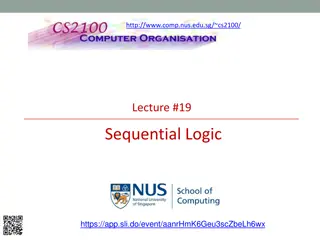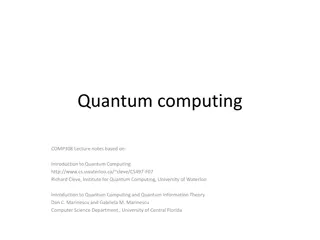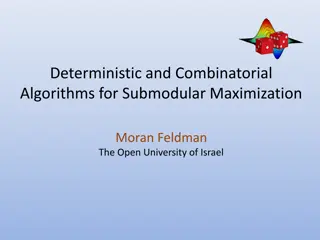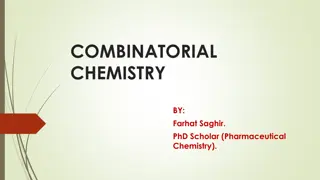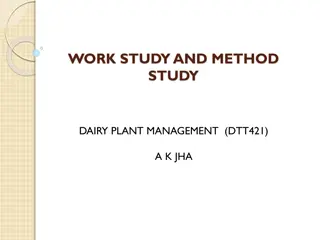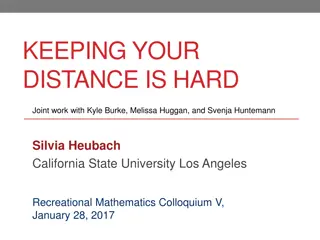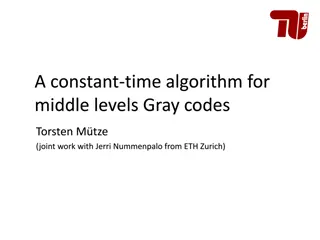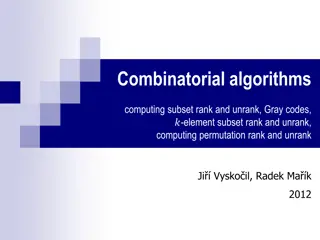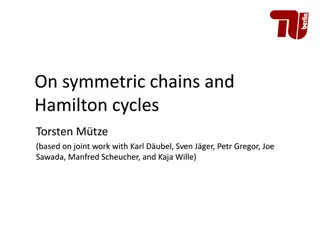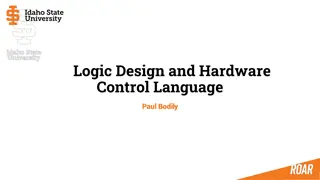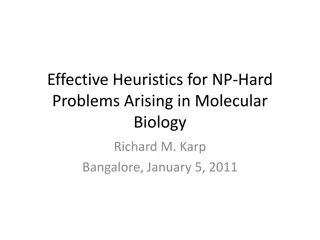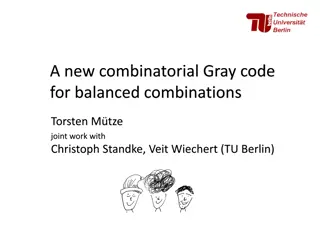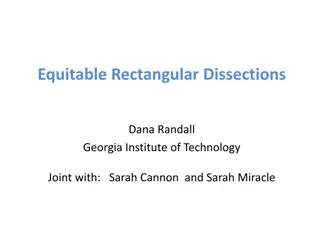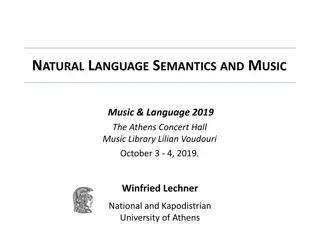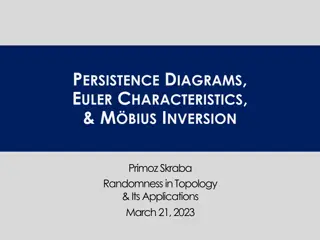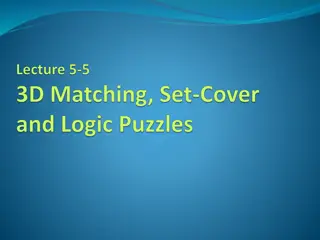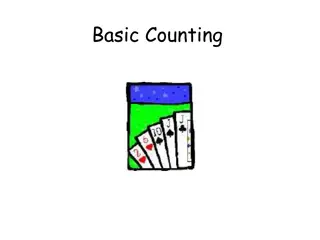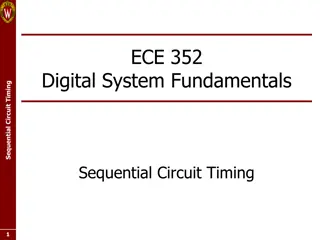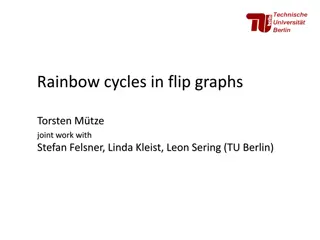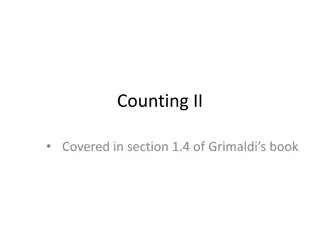How to Effectively Use Study Groups for Better Grades in High School and College
In this article, we\u2019ll unlock the secrets to forming and utilizing study groups effectively, whether you\u2019re looking for a high school study group to ace your next exam or a best college study group to conquer challenging coursework. Read full article https:\/\/explainlearning.com\/blog\/ho
2 views • 3 slides
Faculty-Led Study Abroad Information Session at SHSU Global Engagement Center
SHSU offers faculty-led study abroad courses with specific requirements and responsibilities for faculty members. The programs provide unique teaching experiences, access to academic resources abroad, and opportunities for students to study in various countries. Faculty members play a key role in cr
1 views • 14 slides
Know How to Get an Italy Study Visa and Study in Italy
Want to study in Italy? Get ready to become the proud holder of an Italy study visa, also known as an Italian student visa! But it\u2019s not going to be easy, as you\u2019ll first need to apply for it at your nearest Italian embassy or consulate and then wait for approval from the Department of Edu
3 views • 2 slides
College Study Group What Every Student Needs to Know
Juggling college courses, extracurricular activities, and a social life can feel overwhelming. That\u2019s where the right college study group can be a game-changer. But with so many factors to consider, how do you find the best college study group for you? Explain Learning is here to help you navig
1 views • 4 slides
Understanding Sequential Logic in NUS CS2100 Lecture #19
Explore the concepts of sequential logic in Lecture #19 by Aaron Tan at NUS, covering memory elements, latches, flip-flops, asynchronous inputs, synchronous sequential circuits, and different types of sequential circuits. Delve into the distinction between combinatorial and sequential circuits, memo
3 views • 26 slides
Introduction to Quantum Computing: Exploring the Future of Information Processing
Quantum computing revolutionizes information processing by leveraging quantum mechanics principles, enabling faster algorithms and secure code systems. Advancements in quantum information theory promise efficient distributed systems and combinatorial problem-solving. Discover the evolution of quantu
0 views • 68 slides
Near-Optimal Quantum Algorithms for String Problems - Summary and Insights
Near-Optimal Quantum Algorithms for String Problems by Ce Jin and Shyan Akmal presents groundbreaking research on string problem solutions using quantum algorithms. The study delves into various key topics such as Combinatorial Pattern Matching, Basic String Problems, Quantum Black-box Model, and mo
0 views • 25 slides
Understanding Work Study Methods in Industrial Engineering
Work study involves the systematic examination of methods to improve resource utilization and set performance standards. It includes method study, work measurement, and ergonomics to enhance efficiency and economy in various activities. Method study analyzes work processes for improvement, while wor
1 views • 21 slides
Epic Tools for Clinical Research by Shara Power, RN, BSN, OCN
Explore Epic tools for clinical research developed by Shara Power, a skilled application developer specializing in EPIC Beacon Oncology at UIHC Healthcare Information Systems. Learn about managing research study records, investigational study medication orders, and the process for creating and using
0 views • 26 slides
Submodular Maximization Algorithms Overview
This article discusses deterministic and combinatorial algorithms for submodular maximization, focusing on their applications in various fields such as combinatorics, machine learning, image processing, and algorithmic game theory. It covers key concepts like submodularity, examples of submodular op
0 views • 25 slides
Artificial Intelligence Heuristic Search Techniques
Assistant Professor Manimozhi from the Department of Computer Applications at Bon Secours College for Women in Thanjavur is exploring Artificial Intelligence concepts such as weak methods and Generate-and-Test algorithms. The content covers heuristic search techniques like generating and testing, hi
0 views • 7 slides
Understanding Combinatorial Chemistry in Pharmaceutical Research
Combinatorial chemistry is a powerful method in drug discovery allowing for the synthesis of a large number of compounds simultaneously. This process helps in lead identification and optimization, enabling the screening of diverse compound libraries for potential biological activity. Various design
0 views • 42 slides
Techniques for Improving Productivity in Dairy Plant Management
Work study and method study are essential techniques for enhancing productivity in dairy plant management. Work study involves method study and work measurement to analyze work processes, develop efficient methods, and determine standard times. Method study focuses on recording and evaluating work m
0 views • 11 slides
Understanding Combinators and Computability: Unveiling the Foundations
Delve into the realm of combinatorial logic and computability through the lens of SKI combinators, exploring their Turing completeness and connection to algorithmic decision-making. Discover the historical significance of Hilbert's program, Godel's incompleteness proofs, the Church-Turing thesis, la
0 views • 65 slides
Overview of DARE22 Test Vehicle Design on FD SOI 22nm Process
This detailed presentation explores the test structures and components inside the TV, including combinatorial logic, sequential logic, clock gating, ring oscillators, input-output cells, analog IPs, and more. It covers various test scenarios such as irradiation testing, SET/SEU measurements, functio
1 views • 32 slides
Understanding Discrepancy Minimization in Combinatorial Concepts
Explore the intriguing world of Discrepancy Minimization through concepts like walking on the edges, subsets coloring, arithmetic progressions, and more. Delve into fundamental combinatorial concepts and complexity theory to understand the significance of Discrepancy theory in various fields. Discov
0 views • 33 slides
Solving Combinatorial Problems: Dice Rolls, 8 Queens, and Chess Board Exploration
Implement methods for rolling dice with a specified sum, solving the 8 Queens problem, and exploring chess board configurations. Utilize different algorithms and decision-making processes to tackle these combinatorial challenges effectively.
0 views • 8 slides
Deciphering Combinatorial Games Through Mathematical Analysis
Discover the intricacies of combinatorial games by analyzing strategies for winning and understanding the dynamics of distance games on graphs. Learn about known distance games like COL, SNORT, and NODEKAYLES, and explore techniques such as strategy stealing and mirroring to determine optimal gamepl
0 views • 22 slides
Counting Ways to Place Balls in Bins
Explore the problem of placing labeled balls into labeled bins, considering various scenarios like unrestricted, injective, and surjective placements. Understand the number of ways to distribute balls among bins and delve into related combinatorial concepts.
0 views • 18 slides
Middle Levels Gray Codes: Loopless Generation Algorithms and Conjecture
Combinatorial Gray codes involve generating combinatorial objects with minimal differences between consecutive objects. The Middle Levels Conjecture focuses on cyclically generating ground set subsets with specific characteristics. This conjecture has led to significant theoretical and experimental
0 views • 15 slides
Combinatorial Algorithms for Subset and Permutation Ranking
Combinatorial algorithms play a crucial role in computing subset and permutation rankings. These algorithms involve defining ranking functions, successor functions, lexicographic ordering on subsets, and permutation representations. The functions SUBSETLEXRANK and SUBSETLEXUNRANK are used for comput
0 views • 22 slides
Exploring Symmetric Chains and Hamilton Cycles in Graph Theory
Delve into the study of symmetric chains, Hamilton cycles, and Boolean lattices in graph theory. Discover the relationships between chain decompositions, Boolean lattices, and edge-disjoint symmetric chain decompositions, exploring construction methods and properties such as orthogonality. Uncover t
0 views • 15 slides
S32K3 Real-Time Development Training Overview
Explore the S32K3 Real-Time Development (RTD) training for Logic Control Unit (LCU) in automotive applications. Learn about LCU configuration, main API functions, example codes, Look-Up Table (LUT) setup, and tips for optimal usage. Discover how LCU interacts with combinatorial logic, latches, and a
0 views • 22 slides
Understanding Logic Design and Hardware Control Language
Exploring the fundamental concepts of logic gates, combinatorial circuits, HCL, TAPPS, multiplexors, and the differences between HCL and C language regarding Boolean expressions and circuit evaluation. Learn how HCL handles word-level signals and constructs word-level circuits.
0 views • 17 slides
Improved Truthful Mechanisms for Subadditive Combinatorial Auctions
This research paper discusses strategies to maximize welfare in combinatorial auctions. It explores mechanisms for handling strategic bidders with private valuations, aiming to design truthful and optimal welfare mechanisms while considering polytime constraints. The study presents advancements in a
0 views • 19 slides
Insights into NP-Hard Problems in Molecular Biology and Genetics
Understanding the complexity of NP-Hard Problems arising in molecular biology and genetics is crucial. These problems involve genome sequencing, global alignment of multiple genomes, identifying relations through genome comparison, discovering dysregulated pathways in human diseases, and finding spe
0 views • 24 slides
Understanding CIDAR MoClo Labs in Synthetic Biology Teaching
In CIDAR MoClo Labs, students learn DNA engineering concepts, construction of plasmids, and analysis of fluorescent data. Background knowledge of DNA, proteins, bacterial plasmids, and the LacZ method is required. Skills include pipetting, DNA measurement, bacterial transformation, and plate reader
0 views • 19 slides
A New Combinatorial Gray Code for Balanced Combinations
This research work by Torsten Mütze, Christoph Standke, and Veit Wiechert introduces a new combinatorial Gray code for balanced combinations, focusing on a-element subsets and flaws in Dyck path representation. The study explores various aspects of balanced combinations, their flaws, and the relati
0 views • 30 slides
Rectangular Dissections and Edge-Flip Chains in Lattice Triangulations
Explore equitable rectangular dissections and their applications in VLSI layout, graph mapping, and combinatorial problems in this scholarly work by Dana Randall from Georgia Institute of Technology. Discover the concept of partitioning an n x n lattice region into n2/a rectangles or areas where cor
0 views • 32 slides
Exploring the Relationship Between Language and Music
This presentation delves into the connection between language and music, examining the nuances of linguistic expressions, syntax, and meaning in both domains. It contrasts the formal structure of music with the combinatorial nature of natural language, discussing aspects such as denotation, referenc
0 views • 35 slides
Randomness in Topology: Persistence Diagrams, Euler Characteristics, and Möbius Inversion
Exploring the concept of randomness in topology, this work delves into the fascinating realms of persistence diagrams, Euler characteristics, and Möbius inversion. Jointly presented with Amit Patel, the study uncovers the vast generalization of Möbius inversion as a principle of inclusion-exclusio
0 views • 57 slides
Combinatorial Optimization in Integer Programming and Set-Cover Problems
Explore various combinatorial optimization problems such as Integer Programming, TSP, Knapsack, Set-Cover, and more. Understand concepts like 3-Dimensional Matching, SAT, and how Greedy Algorithms play a role. Delve into NP-Hard problems like Set-Cover and analyze the outcomes of Greedy Algorithm se
0 views • 60 slides
Fundamentals of Counting Principles in Mathematics
In this lecture, we delve into basic rules for counting, including the sum rule, product rule, generalized product rule, permutations, combinations, binomial coefficients, and combinatorial proofs. We also explore the inclusion-exclusion principle with practical examples such as determining total en
0 views • 51 slides
Benchmarking Study of Probabilistic Fracture Mechanics Codes for Piping
This study presents the preliminary results of a benchmarking study on probabilistic fracture mechanics (PFM) codes for piping systems conducted by KINS and CRIEPI. The study aims to improve understanding, recommend best practices, and identify unexpected code behaviors for future enhancements. The
0 views • 37 slides
Understanding Sequential Circuit Timing and Clock Frequency
Sequential circuit timing is crucial for designing digital systems. The minimum clock period, slack values, clock frequency, and critical paths play key roles in determining the operational speed and performance of sequential circuits. By analyzing flip-flop timing parameters, combinatorial logic de
0 views • 20 slides
Rainbow Cycles in Flip Graphs and Associahedra: Combinatorial Study
Exploring rainbow cycles and associated properties in the context of flip graphs and triangulations, this study delves into the diameter, realiability, automorphism group, and more of the associahedron. Motivated by binary reflected Gray codes, the research aims to find balanced Gray codes for vario
0 views • 23 slides
Understanding Permutations with Indistinguishable Objects
Permutations of objects where some items are indistinguishable can be solved using different methods. One example includes reordering the letters of a word like "JESSEE." By identifying the distinct letters and applying combinatorial calculations, the number of unique permutations can be determined
0 views • 72 slides
Probabilistic Existence of Regular Combinatorial Objects
Shachar Lovett from UCSD, along with Greg Kuperberg from UC Davis, and Ron Peled from Tel-Aviv University, explore the probabilistic existence of regular combinatorial objects like regular graphs, hyper-graphs, and k-wise permutations. They introduce novel probabilistic approaches to prove the exist
0 views • 46 slides
Combinatorial Counting and Algorithm Design Concepts
Today's lecture covers the basics of combinatorial counting and its applications in algorithm analysis. Topics include exhaustive search strategies, determining graph properties, and various counting techniques. Techniques such as counting objects and generating subsets are discussed, along with alg
0 views • 20 slides
Clinical Research Workflow Optimization Overview
Clinical research workflow optimization aims to streamline the process of subject enrollment, study approval, and Epic integration. It involves linking encounters to research studies, using automated tools for transactional data, and enhancing the research workqueue training. The process includes au
0 views • 21 slides




